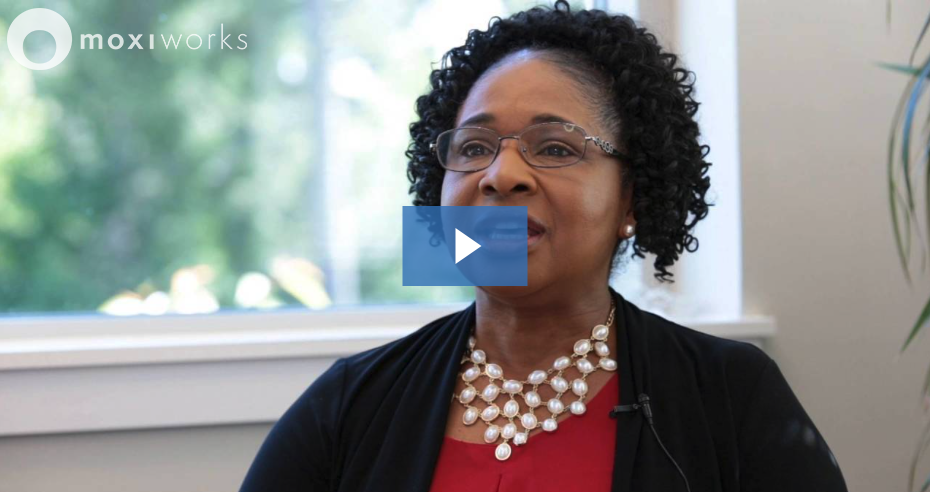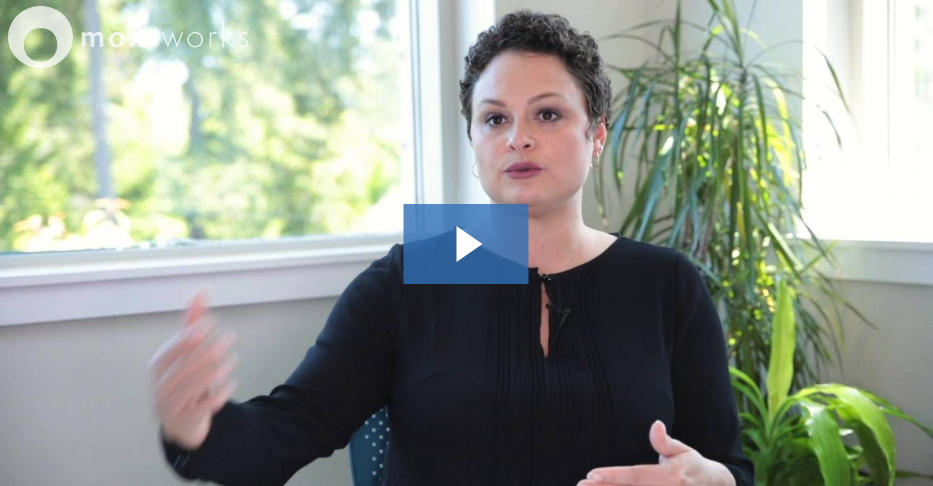Pocket Listings: What You Need to Know

By Jessie Trapp, Marketing Coordinator
 It’s a cut-throat market out there. Inventory seems to become increasingly scarce by the day, and sellers continue to hold tight to their reign as the power players of the real estate world. With agents scrambling to find a competitive edge, it’s no surprise that some of the tactics being used are stirring up serious controversy within the industry.
It’s a cut-throat market out there. Inventory seems to become increasingly scarce by the day, and sellers continue to hold tight to their reign as the power players of the real estate world. With agents scrambling to find a competitive edge, it’s no surprise that some of the tactics being used are stirring up serious controversy within the industry.
Enter: pocket listings. The actual usage of the term “pocket listing” can be somewhat confusing, as it is often used to describe multiple types of property listings that agents have different intentions for. Put simply, a pocket listing is a signed property that an agent has acquired but hasn’t listed on the MLS (Multiple Listing Service). In some cases, the agent intends to list it but simply hasn’t yet, however, for the most part it means that they have a property and intend to sell it to someone in their sphere without ever even placing it on the MLS at all. If you haven’t already, now is the perfect time to put this method on your radar because the secrets out – and clients are asking about it.
The topic of pocket listings is a fiery one among agents because it tends to walk on a fine line between tactical and, arguably, unethical. Agents are, in compliance with the Code of Ethics, required to do everything in their power to ensure that they get the best offer for their client. Those against the practice claim that withholding a pocket listing from the MLS presents the risk of missing out on higher offers that could result from making it accessible to the general public, therefore failing to act in the best interest of the client. Transactions for pocket listings also generally remain in the hands of the listing agent, as they often represent the both the seller and the buyer. Some opposed to the practice also express concern that some agents are too biased in favor of it due to the potentially higher commission in it for them, and fear that clients might not always be well educated on the ramifications associated with the practice.
Although these risks likely account for why pocket listings are usually not considered to be the standard practice in real estate, sellers occasionally prefer it and it has the potential to give agents a notable advantage. Not only can the limited exposure component of the method offer a more private experience for the seller, but it can also simplify the offer process all together and speed up the transaction time. For sellers who are wanting a quick sell, this aspect can be a major incentive to sell their home as a pocket listing. By avoiding listing a property on the MLS you lower the amount of wide spread interest and walk-throughs but, in the right situation, you can also increase the quality and seriousness of the interest received. This brings it back to the agent- because pocket listings take the MLS exposure out of the equation, the quality and health of your CRM and overall sphere plays a major role in how successful you can actually be with this strategy. Not sure if your sphere is up to par? Take a look at this piece we wrote to help you gauge where you stand.
Buyers also occasionally prefer to make offers on pocket properties because less competition means that they are more likely to avoid the grueling bidding war process. Again, depending on the situation this can be negative for both buyers and sellers, but some continue to prefer its more simplistic approach and pursue it anyway. For the sake of transparency, some in the industry feel as though agents should always present pocket listings as an option on the table for their clients. This could be risky for both the client and the agent if handled improperly. As the agent, it’s your responsibility to make sure you’re practicing within the laws, which vary among states, and making the pros and cons associated with the method abundantly clear so that sellers can make informed decisions and you can cover yourself against any potential violations.
Like I said, this topic is complex, and people are all over the board in relation to how they feel about it. The practice is very unregulated, meaning there aren’t reliable statistics reflecting how many agents are actually engaging in it. It does, however, seem safe to say that it’s usage is significant considering tech companies, like this one, are viewing it as an opportunity to create a structured platform for it. Regardless of whether you believe this approach to be an epidemic or a tool, it’s important to analyze its effect on the market from all angles because let’s face it- you’re bound to run into it eventually, and you’re going to want backup.
Doomsday Preppers: How to Get Ready for Future Tech Changes

By Jessie Trapp, Marketing Coordinator
 Technology is advancing at a rate that can be overwhelming, confusing, and downright scary. As an agent, you need to be able to keep up with the technology changes happening around you in order to be competitive and grow your business. There are massive shifts happening in real estate, some of which seem to be looming, ready to take over any moment.
Technology is advancing at a rate that can be overwhelming, confusing, and downright scary. As an agent, you need to be able to keep up with the technology changes happening around you in order to be competitive and grow your business. There are massive shifts happening in real estate, some of which seem to be looming, ready to take over any moment.
For those of you who are worried about what the future holds, here are a few things you should be aware of and what you can do to prepare.
What’s happening:
AI technology is getting personal. Almost too personal. AI (Artificial Intelligence) technology now enables users in the real estate market to evaluate communities based on a broad range of data and draw insights that allow them to pin-point potential buyers. The data itself, which is often related to things like purchasing behavior, home buying history, and internet activity, digs deep into who buyers are and what stage in life they are in. Once AI is used to identify these prospects, the systems then take it a step further and actually market to those individuals directly. This process can be performed on a massive scale and in record time, giving users a major advantage. According to NAR, 51% of last year’s homebuyers found the home they chose to purchase online- an unsurprising statistic based on the direction this technology is headed.
Hold on tight. As you know, today’s seller-powered real estate market is fast paced and the need for quick response and follow-up times is higher than ever. Brace yourself – AI technology is taking it to a whole new level with the creation of chatbots. These bots are preprogrammed with answers to questions frequently asked by homebuyers and can provide them with in-depth information that likely surpasses what agents themselves may have knowledge of. The way in which agents are actually incorporating bots into their businesses varies. From engaging with clients online to physically bringing chatbots to open houses to greet and service the buyers directly – this technology is clearly changing the way agents interact with their clients in a massive way.
Changing the game. You’re likely somewhat familiar, but Instant Offers is a program developed by Zillow that uses technology to re-shape the home selling process while embracing ultimate levels of usability and efficiency.
How it works – Homeowners who are interested in selling their home provide Zillow with basic information and snap shots of the home, which has not yet been listed. If Zillow is interested they will quickly make a cash offer (it only takes a few days) which the seller can then choose to accept or decline, after receiving a CMA estimate provided by a Zillow Agent. Instant Offers claims that if the seller accepts an offer, they have control over the timeline of the sale and the ability to choose the closing date, a major selling point of the program. Once Zillow buys a home they may make renovations to increase its value before assigning it to a Zillow Agent and listing it.
Intriguing, but completely frightening, am I right? Not to worry.
What you can do:
Step up your technology game. It’s clear that technology is the way of the future, so it’s time to stop fighting it and discover how it can help you gain a competitive edge. If you aren’t already using one, it’s time to consider switching to an open platform for your real estate tech. This will allow you to seamlessly translate data from one part of your business to the next while maximizing efficiency and increasing your likelihood of keeping up. Dig deep into your methodology for areas that could benefit from incorporating new technology – getting your data and business set up to eventually get a chatbot of your own, for instance, would likely be a worthy investment. Not only would it take care of initial lead nurturing, freeing you up to focus on more pressing needs, but you can also employ it to gather more information about what your clients are looking for before you actually interact with them. An estimated 80% of businesses have already implemented, or plan to implement chatbots into their businesses, so the move should definitely be on the table.
Look beyond the numbers. I know, I know – staring at numbers may not always be thrilling, but the stories behind them will make or break your business. There are tools available to you today that allow you to skip the math and let computers do the work – so no excuses. Essential, you need to actually utilize the data you have to differentiate and target your marketing efforts. Take time to examine what marketing channels are generating leads and creating an ROI and which ones could use some improvements. AI is already steps ahead of you, so using your resources wisely is a must in order to remain competitive and stand a chance in winning over the leads you have your eye on.
Make it personal. The appeal created by the efficient and user-friendly experience offered by AI technology makes it all the more important for Agents to nurture their sphere – before, during, and after a sale. Similarly, chatbots may be flashy and helpful for the beginning stages of a relationship – but they aren’t humans. Emphasizing the personal and comfortable buying experience that you offer is important – it’s really one of the only aspects of real estate that AI can’t compete with. Instant Offers is all about simplifying and creating a predictable experience for sellers. This means that Agents need to be transparent and make sure that sellers are well prepared for what going through the process with you will look like. Keeping your CRM updated will help you remember the details and celebrate the little things like house-iversaries, which lets clients know you are invested and will likely keep them coming back.
Keep it fresh. Fantastic, you’re ready to have a chatbot do the dirty work and your marketing efforts are on-point. Although these currently might be vital to your success, technology is constantly evolving so you must evolve too. Make sure not to get too stuck in your ways and stay in-touch with the happenings and advances in the real estate market. Pay attention to the information that your tech providers give you, and make sure that you are optimizing your use of the newest tools and features they provide you with.
Become their go-to consultant. The process for buying and selling homes that Instant Offers has created eliminates several of the steps that have traditionally been left up to the agent. This means it is vital that you articulate to the client what role you play in the process and the advantages that you specifically bring to the table. For most clients, especially those who are not well-versed in home selling, the decision of whether or not to accept an offer is likely something that they will want to get an expert’s two-sense on. As the agent you must emphasize the value that your experience and knowledge of the industry has in evaluating whether it is in the seller’s best interest to actually accept the offers that they receive. 89% of successful home buyers say that they would use their agent again. You are irreplaceable – don’t forget it.
Do Your Agents Have Enough Contacts in Their CRM Sphere?

By Maddie Jostol, Marketing Manager
As seen in Mile 62 eMagazine.

Agents rely on their brokerage for coaching and guidance. Your brokerage tools and resources directly contribute to their success and are what make them feel like their career is supported. As you and your managers coach agents on the importance of a CRM and how they should best utilize such a system, guidance has to be specific. The first step to using any CRM is to get your database of contacts cleaned up and uploaded. So, how many contacts should they have in there?
Simply put, the bigger your sphere of influence, the more people within your sphere who will be buying or selling a home. Growing their sphere of influence is vital for growing a sustainable business. For agents, growing a real estate career means growing your sphere of influence. It’s all about making connections and being known in your area as the trusted, go-to person for real estate. Leads are getting scarce as the competitive market continues to heat up. Agents need a sustainable book of business filled with opportunities for repeat and referral business. So, when it comes to contacts in your CRM, how many is enough?
Historically an agents’ database was a list of contacts kept in their phone. Those days are long gone. While this is a fantastic start, an agent’s book of business requires and deserves more care than that. Those contacts should be synced with a system that enables the agent to truly engage with those people as well as organize and grow their business.
Having contacts organized and loaded into a CRM enables agents to truly nurture those contacts. They can automate touchpoints to stay top of mind, segment their database as necessary, and keep track of conversations they’ve had and the history of their relationship with each person.
So, what’s the magic number? We recommend agents have a bare minimum of 100 contacts in their CRM. Once you hit 100, your sphere likely extends past close friends and family to include contacts you can market to and generate leads from. It’s a large enough pool to ensure growth, with people who are not only part of your closest spheres, but have their own groups of friends and acquaintances to refer you to. You sphere is constantly expanding – as people in your sphere communicate with their own sphere, your reach increases.
We recently looked at user data for our Moxi Engage CRM – focusing on users with at least 100 contacts, three or more sales flow conversions, and three or more contacts in an automated marketing programs. We found that these users typically close 31% more sides than users who aren’t leveraging the system in such a way.
At the heart of the sphere-selling methodology is relationships. Each person in an agent’s database represents a relationship that will contribute to their success. Referrals are the highest quality leads you can get other than repeat business. A strong sphere is the number one way to generate referral leads, as long as that database is well taken care of.
7 Ways to Get the Most out of Networking Events

By Alex Jacobs, Business Development Director
As seen in Mile 62 eMagazine.

That time of year is upon is once again, conference season. Some of you may have already attended one or more of the many conferences that have already taken place such as T3, Real Trends Gathering of Eagles or NAR Midyear. Maybe you will be attending one of the upcoming events like Inman Connect in San Francisco, NAR Annual in the fall or a brand conference. All are great events to attend and if you could attend more than one, you should try. The various events have slightly different formats and in many cases the content for the audiences will be different, but each can provide great value.
Whichever conference you choose to attend, it is important to get the most out of the time you spend at the event and to make sure you get your money’s worth. After all, conferences are meant to give you new ideas to help grow your business, learn about new technologies and services, and it is a great time for networking.
Over my 20 years in the industry I have attended more conferences than I can count on my fingers and toes, so I thought I would share some of my tips and tricks when attending a conference. Depending on your function in your company, such as if you are a Broker Owner, Executive Leadership, or Agent, you may each have a different goal or strategy in mind when attending an event, so think about your goal before attending and map out your strategy to get the most out of your time.
So, here are some of my tips and tricks to think about:
1. Prior to attending the event look at the conference material that you are sent or that is available on the conference website. Make sure to look for the sessions and topics that are of interest to you and add them to your calendar, so you know where to be and when to be there. There are lots of great speakers at the events and a lot of great ideas shared in the sessions. Don’t miss a great session because you don’t add it to your schedule.
2. If you are in the market for new technologies and services for yourself or your company, decide which companies you want to visit on the show floor. You will have a very busy schedule, so carving out some time for walking the floor and talking with vendors is important. Many times, the vendors that will be exhibiting are listed on the conference website.
3. Not all conferences have exhibitors or in some cases not all vendors will exhibit, but they will be in attendance. If you are in Senior Leadership or a Broker Owner and are exploring new solutions or services for your company, connect with those companies you are interested in learning more about prior to the conference and try to schedule time to meet with them at the event. While they may not have a booth, they will be interested in scheduling time to meet with you.
4. If the conference has an app make sure to download it. The apps will give you all the information you need at your fingertips. It will provide you with session and speaker information, exhibitor information, conference floorplans and much more.
5. If you are attending any receptions or events being fashionably late is not always fashionable. One of the reasons you attend conferences is to give you the opportunity to network and meet others in the industry. Attending receptions and events is a great way to do this. If you show up late you lose that time to potentially make a great connection. Now if you happen to be going to multiple events that overlap in time, you will be leaving one event early and arriving at another late. That’s not a problem because you will be maximizing your opportunity to meet new people.
6. Attending conferences can be very tiring and it is important to get your rest. With that being said, if you are looking to network and meet new people the hotel bar can be a great place to meet people in the evening after dinner. The lobby bar can get very busy at the events host hotel. If you don’t drink adult beverages grab a soda, coffee, or water and take the opportunity to catch up with those that you meet earlier in the day, catch up with old friends or meet new people. A lot of strong business relationships have been built in the lobby bar. After all, one of the reasons to attend conferences is to network.
7. During the conference you have spent a lot of time meeting people and building business relationships. Make sure that you connect with those new contacts on social media after the conference so that you can continue to build on those relationships. You never know which new contact will send you that referral or can introduce you to somebody that may help you grow your business.
When you attend your next event hopefully my list will give you one or two new ideas to help make the event a success. To help get you started, connect with me on LinknedIn.
Retention: How to Keep Your Agents Happy

By Maddie Jostol, Marketing Manager
 The industry is buzzing about recruiting strategies due to the competitive market. Equally important, however, is a brokerages’ retention strategy. You not only need to win agents over, but you have to keep them happy as well. According to NAR, a real estate agent’s median tenure at their current firm is only four years. That gives you a fairly tight window to make them want to stay for the long-run.
The industry is buzzing about recruiting strategies due to the competitive market. Equally important, however, is a brokerages’ retention strategy. You not only need to win agents over, but you have to keep them happy as well. According to NAR, a real estate agent’s median tenure at their current firm is only four years. That gives you a fairly tight window to make them want to stay for the long-run.
With competitors entering the market with loads of cash and aggressive recruiting tactics, it’s imperative that brokerages focus on how they’re going to retain their existing agents. This is particularly important for new agents as their first year in the business can be discouraging, causing a large portion of new agents to leave the industry. Focus on your people and your people will remain loyal to you.
Here are four tips for continuing to win over and retain those superstar agents:
Celebrate the wins
Don’t forget to celebrate the wins. Find a way to celebrate an agent’s success every time they close a sale. This could be done with office-wide recognition, an office celebration of some sort, or a gift (flowers or lunch are always appreciated). It’s important for agents to know that you’re invested in their success and that you appreciate all of the hard work that goes into each sale.
Provide ongoing training and support
We understand this is likely already a focus, but do your agents really know what’s available to them? Make sure they’re continually reminded of the outstanding training and support your brokerages is offering. Weekly sales meetings are the perfect platform for this. They’re already in the routine of looking forward to and attending these meetings. It’s where they go for insights and resources to help them run their real estate business. Work with your Office Managers to ensure this time is used to offer agents the tools and support that will make them want to stay.
Work-aversaries
Celebrate their success at your brokerage with a work-aversary gift on the anniversary of them joining your team. It will remind them of why they joined the team, how appreciated they are in your community, and what they’ve achieved since they started with your brokerage. Don’t just do this on year one, though, do this every year to create a culture of long-term recognition and encourage retention in the long run.
Our recommendation? Let them choose with a Loop & Tie gift or curate a personal gift from Knack.
Pair them up
Set them up for success by putting them in contact with agents like them. What’s that mean? Leverage data to identify which agents have similar selling history and patterns and pair them up. This will create an encouraging community, where agents working at similar speeds can support each other’s success. If another brokerage comes along, having a close network of colleagues will make it that much more difficult for them to leave their current gig.
Thinking about taking your recruiting and retention strategy to the next level? Be sure to check out Moxi Talent.
To Worry or Not to Worry: Blockchain’s Role in Real Estate

By Tiana Baur, Content Marketing Manager
 Blockchain, Bitcoin, cryptocurrencies…what’s the difference? Why does it matter? What does it mean for our future? It feels like the topic of the year regardless of the industry you’re in. Earlier in the year we wrote an article on cryptocurrencies in the real estate world; buying homes and paying rent with digital currency. While some are splitting up a transaction to use some cryptocurrencies, others are doing the entire transaction via cryptocurrency. There’s even a “Blockchain real estate platform” called ShelterZoom that just announced their application is live in over 10 states.
Blockchain, Bitcoin, cryptocurrencies…what’s the difference? Why does it matter? What does it mean for our future? It feels like the topic of the year regardless of the industry you’re in. Earlier in the year we wrote an article on cryptocurrencies in the real estate world; buying homes and paying rent with digital currency. While some are splitting up a transaction to use some cryptocurrencies, others are doing the entire transaction via cryptocurrency. There’s even a “Blockchain real estate platform” called ShelterZoom that just announced their application is live in over 10 states.
It’s all happening very quickly, but it’s important to make sure we’re all caught up on the basics. Let’s start here:
Cryptocurrency: Digital currency, exchanged and traded over the internet. They’re designed to create a more secure route for trading, and more secure documentation of who traded what, when.
Bitcoin: A decentralized cryptocurrency, that works without a central bank, allowing for less restrictions. It’s the most well-known cryptocurrency.
Blockchain: The network and ecosystem in which bitcoin sends and transfers money on. It’s the foundation that powers Bitcoin and the other cryptocurrencies.
The gist, is that this network is public and can be used to transact anywhere in the world without a bank or “middleman.” It’s also cheaper to do the transaction on Blockchain compared to the traditional way. Our favorite way description of how it all works:
“Imagine that you and your best friend Bob are standing on a stage in an auditorium, and there are 1,000 people in the audience. In front of these 1,000 people, you hand your car keys to Bob, and Bob hands you his Rolex. You declare, “Bob, you now own my car.”
Bob declares back to you, “You now own my Rolex.” There are 1,000 witnesses who can each declare, without doubt, that your car now belongs to Bob, and the Rolex belongs to you. If anyone in the audience later tells a conflicting account of who owns the car or the Rolex, the other 999 people will refute it. And, if you take a spare set of your keys and try to give that same car to someone else, the 1,000 audience members will confirm that Bob owns the car, as each of them witnessed the “transaction.”’ (Forbes, 2018)
While some may say they don’t feel comfortable using Bitcoin or other cryptocurrencies, or don’t trust the network Blockchain itself, others will swear by its innovation in security. The thing is, if you buy a house with bitcoin, you’re technically still buying it in cash, it’s just being converted into a cryptocurrency first. So, how will Blockchain affect the industry as we know it?
Buying/Selling
Before you write it off, real estate transactions could get a whole lot easier. Not only that, but they could get a lot more secure as well. With accurate data and efficiency as its strengths, Blockchain will eliminate the need for a third party; no more waiting for bank wires and checks to clear. On Blockchain, every user has a unique identity via cryptocurrency, meaning financial info can be shared securely to other parties, making the Escrow process a walk in the park.
MLS
As we all know, the MLSs across the nation are tremendously scattered and fragmented. Each one has different restrictions, making it hard to compare data and find trends. While others in the industry, such as Upstream, are trying to solve this issue, Blockchain technology could be the single point of truth that fixes the MLS problem. Secure, nationwide data, with real-time access to property information, what’s not to love?
Records
Titles can be hard to access. Blockchain is starting to change this, with its ability to be a record-keeper for any kind of transaction out there. Smart contracts, personal records and credit history, trademarks, elections, titles – you name it. That means it could also provide a central database for all property titles, saying goodbye to paper titles for good.
In the future where Blockchain rules the land, real estate professionals will actually thrive in it. This technology will only improve the industry and lives of those in it; it’s not a technology you need to be afraid of. We say, learn as much as you can on the topic, stay up-to-date, and get involved hands-on as early as you can. For every one person who is against a decentralized currency, there are two more who are about to hop on the bandwagon.


 Facebook
Facebook
 X
X
 Pinterest
Pinterest
 Copy Link
Copy Link

 As a first-time home buyer, where do you even begin? Saving enough cash to cover a down payment is a big enough hurdle to get over, but that’s just the beginning. The entire process can be intimidating and overwhelming. Mortgages, offers and negotiations, inspections, homeowners insurance, property taxes, the list goes on. That’s where you come in.
As a first-time home buyer, where do you even begin? Saving enough cash to cover a down payment is a big enough hurdle to get over, but that’s just the beginning. The entire process can be intimidating and overwhelming. Mortgages, offers and negotiations, inspections, homeowners insurance, property taxes, the list goes on. That’s where you come in.

